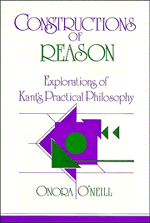Book contents
12 - The great maxims of justice and charity
Published online by Cambridge University Press: 05 June 2012
Summary
Near the beginning of his Second Treatise of Government Locke speaks approvingly of Hooker's derivation of two fundamental principles of human obligation, “the great maxims of justice and charity”. The Law of Nature obliges us not merely to deal justly with others but to preserve them. Charity is concern for the needs of others; it is not a marginal matter of discretionary philanthropy. Like justice, charity is a serious obligation, whose violation might in certain circumstances amount to murder. The status of charity here is strikingly different from its status in recent liberal thinking. Modern liberals, who are agnostic about the good for man and uncertain about human needs, typically depict charity as institutionally and intellectually marginal.
Utilitarian liberals urge us to maximize subjective good. They demand action that satisfies human desires. Concern to meet claims of need is then submerged in generalized beneficence. This has two results. First, charity may be less urgent than fulfilling strong desires for unneeded items. Those whom need reduces to apathy register faint claims on consequentialist scales. Second, since any openended commitment to beneficence generates an alarming “overload” of obligations, utilitarian liberals often compromise and settle for quite a limited conception of beneficence.
Deontological liberals also marginalize charity. Since they are agnostic about the good for man they have nothing to say about virtues, not even about the virtue of justice. They seek principles for building institutions rather than characters.
- Type
- Chapter
- Information
- Constructions of ReasonExplorations of Kant's Practical Philosophy, pp. 219 - 234Publisher: Cambridge University PressPrint publication year: 1990
- 2
- Cited by



